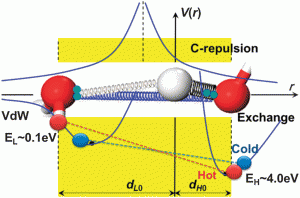Take two bodies of water whose initial characteristics are identical, except for their temperature. Measure how long it takes these two bodies of water to cool to the same specified lower temperature. Explain why the initially hotter water apparently cools faster.
Alright, so it’s a bit more complicated than that, with precise experimental parameters that must be adhered to, but the essence of the problem remains the same. There appears to be a difference in the relative rates at which different bodies of water cool depending on their starting temperatures. The Mpemba effect (as it is often known) may sound simple, but it is a phenomenon that is often disputed, deceptively difficult to analyse, has many proffered explanations and a historical pedigree going back to Aristotle. A few years ago the RSC even held a competition to try to settle the matter and reach a consensus of opinion. Yet despite the declaration of a winner, apparently not everybody agreed that the question was quite settled once and for all.
Now, Zhang et al. are throwing their hat into the ring with a new answer. They say that they’ve approached the problem from an unusual angle, and present new quantitative evidence to support their argument. So have they finally cracked it, or is this just the latest in a long line of possible explanations that extends back over thousands of years? With a topic as divisive as this, I’m not placing any bets just yet.
Read the original manuscript online now!
Hydrogen-bond memory and water-skin supersolidity resolving the Mpemba paradox
Xi Zhang, Yongli Huang, Zengsheng Ma, Yichun Zhou, Ji Zhou, Weitao Zheng, Qing Jiang and Chang Q. Sun
Phys. Chem. Chem. Phys., 2014, DOI: 10.1039/C4CP03669G











